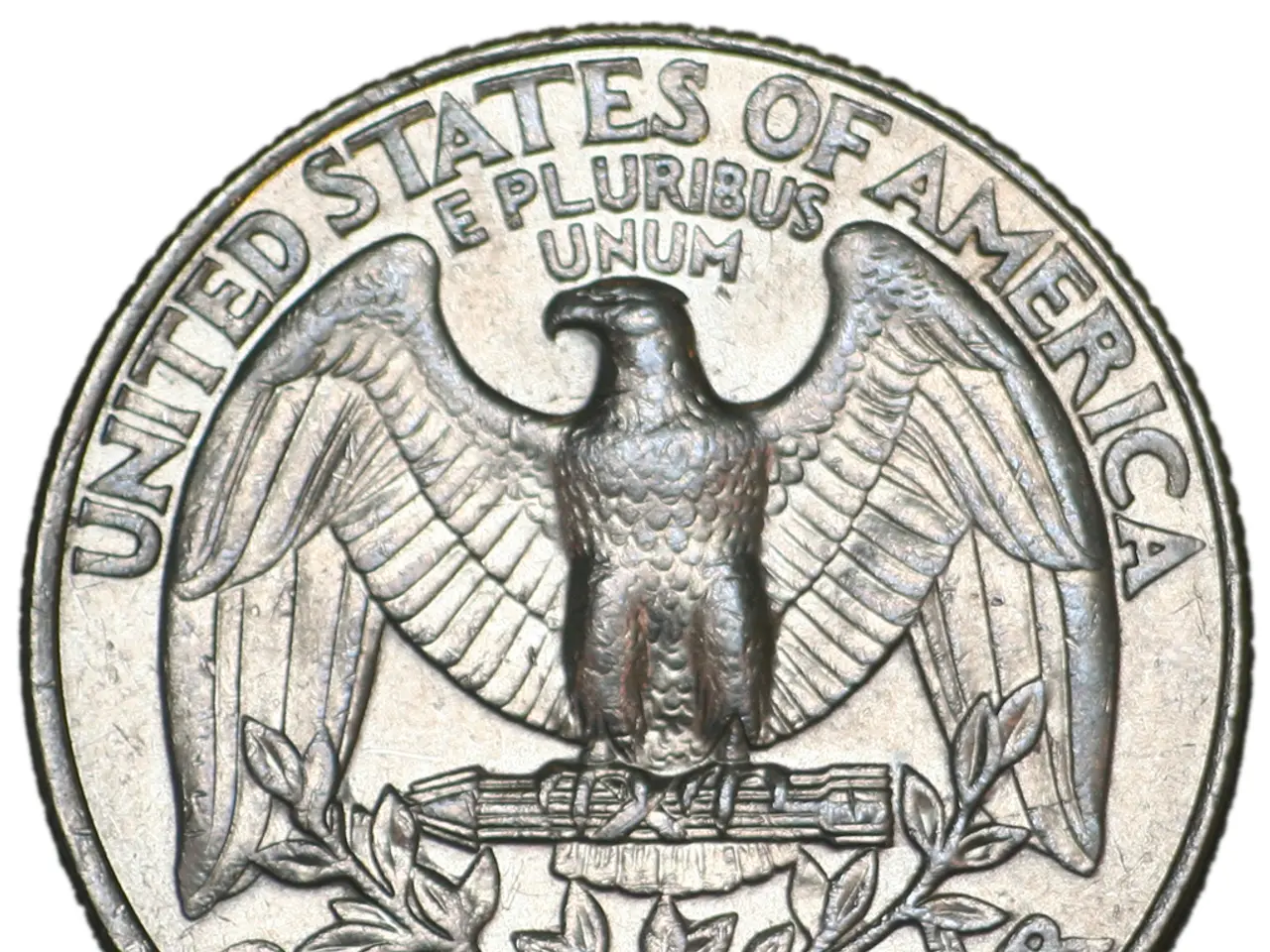Unleashing Your Home's Hidden Wealth: A Guide to Cash-Out Refinancing
Home Equity Refinancing: Understanding the Process and its Implications
Here's an innovative way to boost your finances using the equity built in your home: cash-out refinancing. This financial strategy involves swapping your existing mortgage for a larger one, unlocking the cash tied up in your home's equity.
Cash-Out Refinance Explained
In layman's terms, a cash-out refi is the process of replacing your current mortgage with a bigger one that includes funds drawn from your home's equity. You'll receive the cash as a lump sum, which you can utilize for various purposes such as home renovations, debt consolidation, or covering education costs.
Current Cash-Out Refinance Rates and Workings
A cash-out refi operates similarly to a regular refinance but with a key difference - your new mortgage will be larger, allowing you to withdraw funds from your home's equity. The new loan terms include a revised interest rate and often a new loan term length.
Example and Cash-Out Refi Requirements
Let's consider an example: if your home is worth $400,000, and you still owe $100,000, the house equity stands at $300,000. To qualify for a cash-out refi, you'll typically need to maintain at least 20% equity, meaning you'll have to retain $80,000, leaving you with up to $220,000 to withdraw.
In addition to maintaining a home equity, you'll also need to meet other criteria such as a good credit score, an acceptable debt-to-income ratio, and proof of income.
Securing a Cash-Out Refinance
To secure a cash-out refi, follow these steps:
- Determine the maximum amount you can withdraw by estimating your home's value and calculating 80% of it (0.80 x home value). Subtract your current mortgage balance from this figure to get the possible cash-out amount.
- Define your financial goals for the cash-out refinance. Ensure the funds will help you fulfill your long-term financial objectives.
- Shop around for the best loan terms by comparing offers from several lenders. Consider their closing costs and fees.
- Once you've chosen a lender, complete their application and underwriting process, providing proof of income and other necessary documents. Your home will also undergo a professional appraisal to determine its value.
How Much Cash Can You Get?
Using a conventional cash-out refinance, you can typically borrow up to 80% of your home's value. However, this threshold varies for different property types. For example, multifamily homes often only allow borrowing up to 75% of the property's value.
Ways to Utilize Cash-Out Refi Proceeds
You can use the cash-out refinance funds for various purposes, although many borrowers apply them to home improvements, debt consolidation, or college tuition.
Pros and Cons of Cash-Out Refinancing
Pros
- Lower Interest Rates: Cash-out refinances often feature lower interest rates compared to home equity loans, personal loans, and credit cards.
- Improved Credit Utilization: If you use the funds to consolidate debt, your credit utilization ratio might drop, potentially improving your credit score.
- Tax Deductions: You may be eligible for tax deductions on the interest paid if you use the funds for home improvements and itemize your taxes.
Cons
- Increased Interest: Your interest rate might rise if interest rates have increased significantly since your original mortgage, causing you to pay more over the life of the loan.
- Prolonged Repayments: If you're using a cash-out refi to consolidate debt, ensure that you're not stretching the repayment period over decades, as this could result in higher overall costs.
- Risk of Foreclosure: A cash-out refinance increases your mortgage balance, raising the risk of losing your home if you fail to repay the loan.
Is Cash-Out Refinancing Right for You?
The decision to proceed with a cash-out refinance should be based on your personal circumstances. A cash-out refi could be beneficial if:
- You can secure a lower interest rate due to falling mortgage rates or improved credit.
- You require a substantial amount of cash for long-term financial objectives, such as building wealth or funding education.
Alternatives to Cash-Out Refinancing
If a cash-out refinance isn't suitable, consider other options like a Home Equity Line of Credit (HELOC), a Home Equity Loan, a Personal Loan, or a Reverse Mortgage. Each option comes with its pros and cons, so it's crucial to weigh them against your financial situation before making a decision.
Frequently Asked Questions
Closing Costs
Closing costs on a cash-out refinance are typically lower than those on a home purchase. Lenders usually charge an appraisal fee and an origination fee, often as a percentage of the borrowed amount.
Appraisal Requirement
Yes, lenders usually require an appraisal to determine the value of your home to assess the available equity.
Payment Changes
Your new mortgage payment could change based on the revised interest rate and the amount of equity withdrawn. In some cases, the monthly payment might remain similar even with a larger loan if you secure a significantly lower rate.
Impact on Credit Score
A cash-out refinance could potentially hurt your credit score due to the increased loan size, which can impact your credit utilization ratio, and the shortened average credit account age.
Approval Process
Getting approved for a cash-out refinance isn't overly challenging if you meet the lender's requirements, which typically include a minimum credit score of at least 620, at least 20% equity in your home, a good debt-to-income ratio, and proof of income. Additionally, you must typically have owned your home for at least six months.
Home equity and cash-out refinancing can play a significant role in one's personal-finance and business strategies, as they offer an opportunity to unlock funds tied up in a home's equity. For instance, the cash obtained from a cash-out refinance can be utilized for various purposes, such as financing business expansion or consolidating personal debt. Consequently, understanding the process, benefits, and drawbacks of cash-out refinancing is essential for making informed decisions in one's financial journey.




